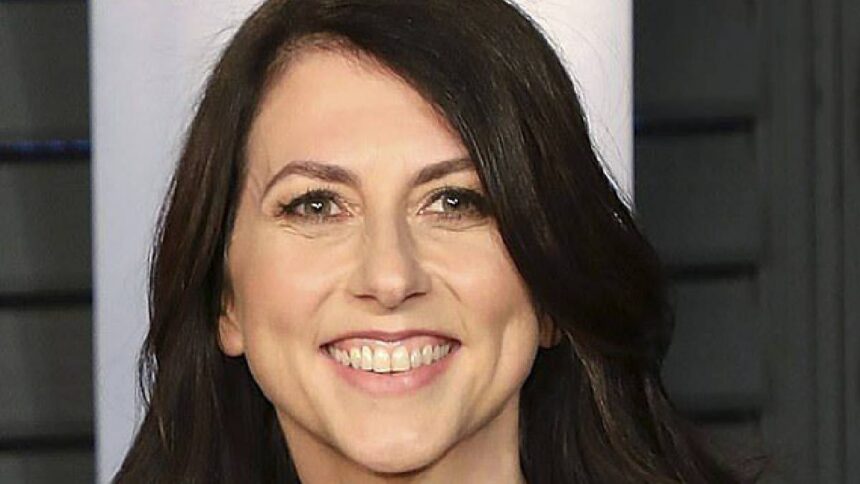In the realm of extraordinary wealth and philanthropy, few names stand out as prominently as Mackenzie Scott. Once known primarily as the former wife of Amazon founder Jeff Bezos, Scott has established herself as one of the world’s most influential philanthropists and a formidable financial force in her own right. With a net worth that has fluctuated significantly due to her aggressive charitable giving and market conditions, Scott’s financial journey represents a fascinating case study in wealth management, philanthropy, and personal reinvention. In this comprehensive analysis, we explore Mackenzie Scott current net worth, the sources of her immense wealth, her unprecedented approach to charitable giving, and what the future might hold for her fortune.
Net Worth
As of April 2025, Mackenzie Scott net worth is estimated at approximately $35.4 billion, placing her consistently among the world’s wealthiest individuals. This figure represents a notable decrease from her peak wealth following her divorce from Jeff Bezos in 2019, when she received a quarter of his Amazon holdings—4% of the company—which at the time was valued at approximately $38 billion.
The substantial reduction in her net worth isn’t due to poor investment decisions or market downturns but rather stems from her extraordinary commitment to philanthropy. Since 2019, Scott has donated more than $14 billion to various charitable organizations and causes, making her one of the most generous philanthropists of our time.
The Origins of Scott’s Vast Wealth
Mackenzie Scott’s immense fortune primarily originated from her significant stake in Amazon, the e-commerce giant she helped build in its early days alongside her former husband Jeff Bezos. While many might assume her wealth came solely through divorce proceedings, it’s important to recognize Scott’s early contributions to Amazon’s success.
After graduating from Princeton University in 1992, Scott worked at D.E. Shaw, a quantitative hedge fund, where she met Jeff Bezos. When Bezos conceived the idea for Amazon in 1994, Scott was one of the company’s first employees, handling bookkeeping and administrative tasks. She was instrumental during the company’s formative years, helping to craft its business plan and secure early investors.
Following their divorce in 2019, Scott received approximately 25% of the couple’s Amazon shares, making her instantly one of the wealthiest women in the world. The settlement left Bezos with 75% of the couple’s Amazon stock and voting control of Scott’s shares.
Investment Strategy and Asset Allocation
Unlike many ultra-high-net-worth individuals who often diversify extensively, Scott’s wealth remains heavily concentrated in Amazon stock. While the exact breakdown of her investment portfolio isn’t public knowledge, financial analysts estimate that Amazon shares still constitute over 60% of her total assets.
This concentration has both advantages and risks. On one hand, Amazon’s continued growth over the years has significantly increased the value of her holdings. On the other hand, such concentration exposes her wealth to the volatility of a single company’s performance.
Beyond her Amazon holdings, Scott is believed to have investments in:
- Blue-chip stocks across various sectors
- Real estate properties in key markets
- Private equity investments in promising startups
- Fixed-income securities for capital preservation
Her investment philosophy appears to balance growth with socially responsible investing principles, aligning with her public commitment to ethical wealth management.
The Giving Pledge and Philanthropic Philosophy
In 2019, Scott signed the Giving Pledge, committing to donate the majority of her wealth during her lifetime or in her will. Unlike many signatories who make this pledge as a theoretical future commitment, Scott has acted with unprecedented speed and scale.
What makes Scott’s philanthropy particularly noteworthy is her unique approach. She emphasizes:
- Unrestricted grants – Giving organizations complete freedom in how they use donated funds
- No bureaucratic hurdles – Eliminating lengthy application processes
- Focus on underrepresented communities – Prioritizing organizations led by people with direct experience in the issues they’re addressing
- Transparency – Publicly announcing donations while maintaining privacy for recipients who request it
Her giving strategy represents a paradigm shift in philanthropic practices, challenging traditional approaches that often impose strict conditions on how donations can be used.
Major Charitable Donations and Their Impact
Since her divorce, Scott has conducted several rounds of giving, each characterized by substantial donations to numerous organizations across diverse sectors. Some of the main beneficiaries have included:
- Educational institutions, particularly historically Black colleges and universities (HBCUs)
- Racial equity organizations working to address systemic inequalities
- Women’s rights groups advocating for gender equality
- LGBTQ+ advocacy organizations supporting equality and inclusion
- Public health initiatives addressing healthcare disparities
- Economic mobility programs working to lift people out of poverty
Many recipient organizations have reported that Scott’s donations were the largest single gifts in their histories, often transformative in scale. For example, her $40 million gift to Morgan State University, an HBCU in Baltimore, represented the largest private donation in the school’s 153-year history.
Wealth Management Strategy and Tax Implications
Managing a fortune of Scott’s magnitude requires sophisticated financial planning. While specific details about her wealth management team aren’t public, it’s reasonable to assume she employs top-tier financial advisors, tax specialists, and philanthropic consultants.
The tax implications of Scott’s giving are significant. Under U.S. tax law, charitable donations can be deducted up to 60% of adjusted gross income for cash gifts and 30% for appreciated securities. Given the scale of her giving, Scott likely benefits from substantial tax deductions, though her primary motivation appears to be genuine philanthropic intent rather than tax avoidance.
Financial experts estimate that her aggressive giving strategy has saved her billions in potential tax liabilities while simultaneously fulfilling her charitable objectives.
Comparison to Other Billionaire Philanthropists
Scott’s approach to philanthropy contrasts sharply with that of many other billionaires. While figures like Bill Gates and Warren Buffett have created large foundations with extensive infrastructure to manage their giving, Scott has opted for a leaner, more direct approach.
Some key distinctions include:
- Speed of giving – Scott has donated billions within a short timeframe, while others typically spread their giving over decades
- Organizational structure – She operates without a traditional foundation structure
- Decision-making process – Her team conducts research privately rather than accepting applications
- Recipient autonomy – She places unusual trust in organizations to determine how best to use funds
This approach has earned praise for its efficiency and respect for recipient organizations’ expertise, though some critics question the lack of public accountability mechanisms.
Future Outlook: What’s Next for Scott’s Fortune?
Given her current trajectory, we expect Scott’s philanthropic activities to continue at a similar pace. If she maintains her giving rate, she could potentially donate another $10-15 billion over the next five years.
Several factors will influence the future of her wealth:
- Amazon’s stock performance will remain a primary driver of Mackenzie Scott net worth fluctuations
- Market conditions affecting her broader investment portfolio
- Future philanthropic priorities as she identifies new causes and organizations
- Potential changes in tax policies affecting the wealthy and charitable giving
Financial analysts project that if Scott continues her current rate of giving while Amazon maintains moderate growth, Mackenzie Scott net worth might stabilize around $25-30 billion in the coming years, assuming she doesn’t accelerate her donations further.
The Lasting Legacy of Mackenzie Scott’s Wealth Management
Beyond the immediate impact of her donations, Scott’s approach to wealth and philanthropy may influence how future billionaires approach giving. Her emphasis on trust, minimal bureaucracy, and rapid deployment of capital represents a potential evolution in how the ultra-wealthy engage with charitable causes.
Her legacy will likely be defined not just by the amount she gave away but by how she transformed the practice of giving itself. By demonstrating that massive wealth can be redistributed quickly and effectively without extensive infrastructure, Scott has challenged conventional wisdom about the pace and process of philanthropy.
As we continue to monitor Scott’s financial journey, one thing remains clear: her approach to wealth management and charitable giving has already left an indelible mark on both the financial and philanthropic worlds, potentially influencing generations of wealthy donors to come.




